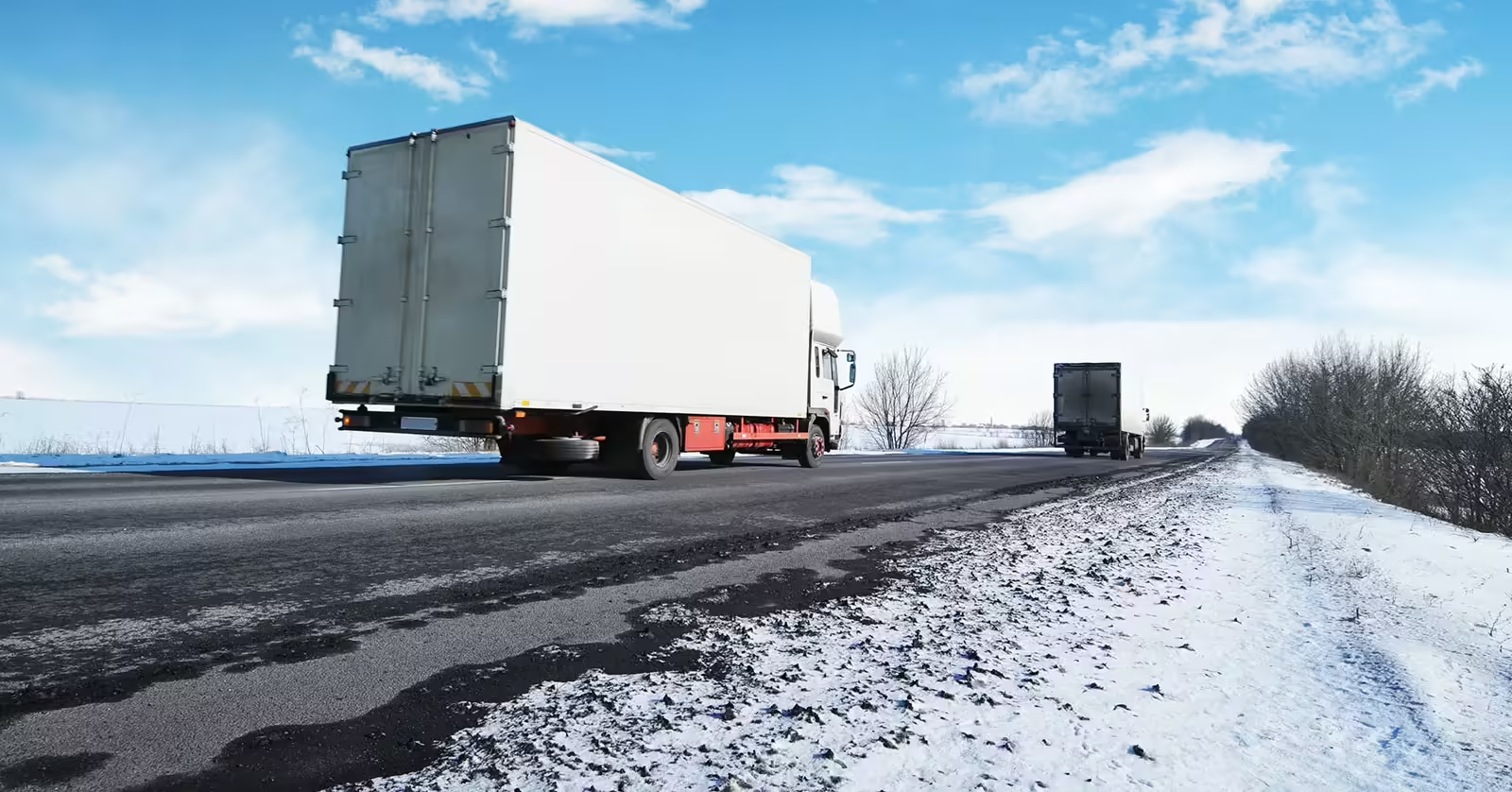The Shortage of Commercial 18-Wheeler Drivers this Holiday Season
December 1, 2022

The holidays are coming. Holidays involve a lot of domestic travel. People travel near and far to visit relatives and loved ones in hopes of spreading holiday cheer, exchanging gifts, and enjoying different mixtures of eggnogs and other holiday delights. The increase in holiday shopping demands with days such as Black Friday, Cyber Monday, after-Christmas sales, and all of the New Year’s sales typically causes an increase in the workload of 18-wheeler drivers. Another byproduct of this is an increase in 18-wheeler crashes.
The National Highway Traffic Safety Administration (NHTSA) reported that 146,930 people were injured in accidents involving large trucks in 2020. NHSTA tracked the number of daily traffic-related fatalities during the Christmas season between 2001 and 2005 and noticed that, on average, 45 people died each day, compared to 36 per day every other day of the year. The increase of personal and commercial vehicles travel on the road to meet holiday demands is at the root of why so many accidents involving 18-wheelers and large trucks occur during the holidays.
The increase in 18-wheeler crashes is attributable to three things: an increase in driver fatigue, tight schedules, and poor weather conditions. The holiday season brings a lot of snow flurries, sleet, and the notorious black ice. Slick roads make it especially difficult to navigate, especially for freight trucks that are praying to make strict scheduling demands for their employers.
With a shortage of 18-wheeler drivers, there is a possibility that the number of 18-wheeler crashes will increase this holiday season.
How Big is the Shortage?
The American Trucking Associations (ATA) estimates in 2022 that the ongoing truck driver shortage in the United States will remain near its historical high at nearly 78,000 drivers.
One of the reasons for the shortage is that many sectors in the trucking industry have struggled to find qualified long-haul 18-wheeler drivers. Notably, there is a greater shortage of qualified long-haul 18-wheeler drivers. Some companies are offering serious incentives to get people behind the wheel of an 18-wheeler because companies still need to move freight across the U.S. While some materials and goods can be moved by train, many everyday goods are hauled on 18-wheelers throughout the nation.
Shortage of 18-Wheeler Drivers Could Lead to Significant Problems
The shortage of 18-wheeler drivers could lead to significant problems. Are companies hiring less qualified 18-wheeler drivers? Are the 18-wheeler drivers that are making up for the shortage properly trained? Are 18-wheeler drivers being overworked? Are 18-wheeler drivers being given enough rest and breaks throughout the day?
Serious problems can arise when 18-wheeler drivers are not properly trained, when they lack the necessary experience, and when they are overworked and not given enough breaks or sleep. Sleepy, overworked, and improperly trained 18-wheeler drivers can and have caused serious crashes that led to severe injury and death. Serious injuries include, but is not limited to the following:
- Back and Neck Injuries
- Spinal Cord Injuries
- Head and Brain Injuries
- Burns
- Amputation and Disfigurement
- Internal Injuries (e.g. Injuries to Your Organs)
- Cuts, Bruises, Broken Bones, and Lacerations
What Should I do If I am Injured by an 18-Wheeler Driver
An 18-wheeler accident is difficult to imagine, much less live through. Despite a large number of 18-wheelers on our roads and highways, nobody really expects to be involved in an accident with one. Nevertheless, motorists continue to share roads throughout the country with these massive vehicles. The effects of an 18-wheeler accident are devastating. 18-wheelers are often 20-30 times the size and weight of other vehicles on the road and have the ability to tear through cars, trucks, and SUVs, leaving behind death and debris.
Most people wouldn’t be surprised to learn that 18-wheelers don’t stop as quickly as ordinary vehicles or that 18-wheeler drivers usually cannot respond to sudden traffic changes as nimbly as drivers of cars, trucks, and SUVs. Most people know that commercial trucks are involved in a disproportionate number of serious and fatal accidents. But people may be startled to learn the actual figures—eleven percent of all motor vehicle crash deaths were the result of large trucks, including 18-wheelers, and ninety-seven percent of the people killed in crashes between a passenger vehicle and large truck were occupants of the passenger vehicle.
So, here’s what you should do (and not do) if you’ve just been in an 18-wheeler accident:
- Call 911
- Calling 911 will ensure that emergency medical personnel and law enforcement respond to the scene. You and others involved in the accident may have injuries that require immediate medical attention. If you are not taken immediately to a hospital, see a doctor for an evaluation as soon as possible after leaving the scene.
- Get the name of the truck driver and other relevant information
- You want to get some information about the driver. Try to take a photo of their driver’s license. At a minimum, get their driver’s license number and note the state that issued their driver’s license. Also, get the U.S. DOT number which is usually on the side of the 18-wheeler. Take photos of their insurance documents if you can. Get the phone numbers of everyone involved in the crash (including the 18-wheeler driver). Ask the 18-wheeler driver to identify their employer and provide you with their employer’s contact information. Most of this information will be put into the police report by the responding officer. However, the Boy Scout approach to always be prepared will come in handy. Sometimes information put into a crash report is not correct.
- Be a Detective and Start Collecting Evidence
- Take your phone out and start taking pictures. Take photos of license plates of the 18-wheeler tractor and trailer, the 18-wheeler driver, damage to your vehicle, the 18-wheeler itself, the crash site and the area surrounding the crash, and your injuries. If the 18-wheeler is equipped with a dash cam, take a picture of it and see if you can get a copy.
- Get the names and contact information (phone, email, and address) of any witnesses.
- Do not Talk to Anyone About the Crash
- People have a tendency to share experiences with others. In this case, don’t! Don’t tell your best friend about what happened. Definitely do not make any posts on social media. Under no circumstances should you give a recorded statement until you speak with one of Morrow & Sheppard, LLP’s experienced 18-wheeler crash attorneys.
- Do Not Speak with the Insurance Company Until You Speak with an Attorney
- Insurance companies and their adjusters are not your friends. Some adjusters want to pay you as little as possible to make you go away. They know that a lawyer will make their job more difficult. Lawyers will not let them get away with paying you less than what you deserve and can negotiate a settlement on your behalf. Hire a lawyer to represent you and fight for the compensation you deserve. Generally, people who hire a lawyer to represent them following a wreck with an 18-wheeler are more appropriately compensated for their injuries and losses.
- Do not Sign a Medical Authorization to an Insurance Company (for now)
- Insurance adjusters are not your friend and you generally do not need to give them an authorization to request your medical records (with some exceptions). Do not give them an authorization to request your medical records.
- Call Morrow & Sheppard, LLP
- There’s an old Wall Street adage: Once the shoeshine boy and the taxi driver offer stock tips, it’s time to sell. While many attorneys advertise that they handle personal injury car wrecks, 18-wheeler cases are more complicated than car wrecks. To give yourself the best chance of recovering fully for your injuries and other damages, you’ll need help from an experienced 18-wheeler accident attorney.
If I am Injured in an 18-Wheeler Crash, How Much Money am I Entitled to?
Unfortunately, a jury cannot heal your physical and mental injuries. All they can do is award monetary damages. Many of our clients want to know how much money they may receive as compensation for their injuries. When we’re asked, we cannot give an answer. To determine the amount of damages you are entitled to, we must gather evidence to identify your economic losses and non-economic losses. For economic losses, we typically need to get copies of the following:
- Vehicle repair cost statements
- Health care bills
- Bills for counseling
- Paycheck stubs, W-2’s, and/or 1099’s to show your lost wages
- Timesheets and work schedules
- Diminished value estimates
Non-economic losses (mental anguish and pain and suffering) are less concrete than financial ones. They are no less real. We cannot promise you results, but we can give you our personal attention and work hard to bring your case to a successful resolution. The 18-wheeler accident attorneys at Morrow & Sheppard, LLP will fight for what you are entitled to receive. Morrow & Sheppard LLP’s 18-wheeler accident attorneys regularly handle cases involving commercial vehicle crashes. Our attorneys are licensed in Texas, Louisiana, and New Mexico and have been admitted on a temporary basis to handle work injury cases all around the country. If you have been injured in an 18-wheeler crash, contact the team at Morrow & Sheppard LLP for a free, confidential consultation.
Daniel Sheppard is licensed to practice personal injury law in Texas and Louisiana. Daniel takes pride in providing exceptional service to clients who were seriously hurt on the job and brings his relentless work ethic into the office and the courtroom. Learn more about Daniel.
- Home
- |
- Car Accidents
- |
- The Shortage of Commercial 18-Wheeler...
















































